deadhead chemist dmt
$220.00
deadhead chemist dmt
Microdose DMT from Deadhead Chemist offers a unique and subtle way to experience the benefits of DMT in small, manageable doses. Ideal for those seeking enhanced creativity, focus, and introspection, this product is crafted for safe and responsible use, allowing users to explore the psychedelic effects without overwhelming intensity. Each microdose is precisely measured to ensure consistency and quality, making it a popular choice among those interested in the therapeutic potential of psychedelics.
Microdose DMT Deadhead Chemist
Microdose DMT by Deadhead Chemist is a thoughtfully formulated product designed to provide users with the profound benefits of DMT in microdoses, allowing for a gentle exploration of consciousness without the overwhelming effects typically associated with higher doses. This innovative approach caters to individuals seeking to enhance their creativity, focus, and emotional well-being while minimizing the risks associated with full psychedelic experiences.
Key Features:
-
Precision Dosing:
Each microdose is meticulously crafted to deliver a consistent and controlled amount of DMT, ensuring that users can experience the desired effects without the intensity of a full dose. This precision allows for a tailored experience, making it suitable for both newcomers and seasoned users. -
Enhanced Creativity and Focus:
Users often report increased creativity, improved focus, and heightened introspection when using microdoses of DMT. This makes it an appealing option for artists, writers, and professionals looking to unlock new levels of inspiration and productivity. -
Therapeutic Potential:
Microdosing has gained attention for its potential therapeutic benefits, including alleviating symptoms of anxiety and depression. Many users find that microdosing DMT can help them gain new perspectives on their thoughts and emotions, fostering personal growth and emotional resilience. -
Safe and Responsible Use:
Deadhead Chemist emphasizes the importance of safe and responsible use. The microdoses are designed to be taken in a controlled manner, allowing users to integrate their experiences into daily life without the risk of overwhelming trips. -
Quality Assurance:
Deadhead Chemist is committed to quality and safety. Each batch of microdose DMT undergoes rigorous testing to ensure purity and potency, providing users with peace of mind regarding the product they are consuming. -
Community and Support:
The brand fosters a community of users who share their experiences and insights, creating a supportive environment for those exploring the benefits of microdosing. Educational resources and guidance are also available to help users navigate their journeys safely.
In conclusion, Microdose DMT from Deadhead Chemist represents a groundbreaking approach to experiencing the benefits of DMT in a manageable and responsible way. With its focus on precision dosing, therapeutic potential, and community support, this product is ideal for those looking to enhance their creativity, focus, and emotional well-being while exploring the fascinating world of psychedelics.
Microdosing DMT has shown potential therapeutic applications, particularly in improving mood and reducing anxiety. Research indicates that chronic, intermittent microdoses may enhance emotional well-being and psychological functioning, making it a promising area for further exploration in mental health treatment.
The long-term effects of microdosing DMT on mental health are still being studied, but some users report improvements in mood, focus, and daily functioning. However, there are also potential risks, including increased anxiety and psychological dependency, highlighting the need for further research in this area.
Exploring the effect of microdosing psychedelics on creativity in an
Spontaneous and deliberate creative cognition during and after …
Microdosing DMT may enhance creativity and problem-solving abilities, as some studies suggest improvements in creative thinking and cognitive flexibility. However, the evidence is still emerging, and individual experiences can vary widely, necessitating further research to fully understand its effects. Potential Benefits of Microdosing DMT on Creativity
-
Enhanced Creative Thinking: Some anecdotal reports and preliminary studies indicate that microdosing DMT may lead to increased creativity, particularly in divergent thinking, which involves generating multiple ideas or solutions.
-
Cognitive Flexibility: Microdosing may improve cognitive flexibility, allowing individuals to think outside the box and approach problems from new angles.
-
Increased Focus and Energy: Users often report heightened focus and energy levels, which can contribute to improved productivity and creative output.
Research Findings
-
Mixed Evidence: While some studies suggest positive effects on creativity, the research is still in its early stages, and results can be inconsistent. For instance, a study on microdosing psychedelics indicated improvements in creative problem-solving abilities, but results varied among participants.
-
Neural Connectivity: Psychedelics, including DMT, may alter brain connectivity patterns, potentially linking different neural networks that facilitate creative thought. This could enhance the ability to generate and evaluate ideas.
Potential Risks and Considerations
-
Individual Variability: The effects of microdosing can vary significantly from person to person, with some experiencing enhanced creativity while others may not notice any change or could even experience negative effects.
-
Lack of Comprehensive Research: More rigorous, controlled studies are needed to establish a clearer understanding of how microdosing DMT affects creativity and problem-solving abilities over the long term.
-
Psychological Effects: There are potential risks associated with microdosing, including increased anxiety or psychological dependency, which could counteract any creative benefits.
Conclusion
Microdosing DMT shows promise for enhancing creativity and problem-solving abilities, but further research is essential to validate these claims and understand the long-term implications on mental health and cognitive function.
Psychedelics: Risks and benefits of microdosing revealed
Microdosing DMT carries several risks for cognitive enhancement, including increased anxiety, reduced focus, and potential mood disturbances. While some users report benefits, the lack of comprehensive research means that individual responses can vary widely, and negative effects may outweigh any perceived cognitive gains. Potential Risks of Microdosing DMT for Cognitive Enhancement
-
Increased Anxiety: Some individuals may experience heightened anxiety or panic attacks, which can negatively impact cognitive performance and overall mental health.
-
Mood Disturbances: Microdosing can lead to fluctuations in mood, including irritability or depressive symptoms, which may hinder cognitive function and creativity.
-
Reduced Focus: While some users report enhanced focus, others may find that microdosing leads to distractions or difficulty concentrating, counteracting any potential cognitive benefits.
-
Psychological Dependency: There is a risk of developing a psychological reliance on microdosing for cognitive enhancement, which can lead to negative mental health outcomes.
-
Unpredictable Effects: The effects of microdosing can vary significantly among individuals, with some experiencing adverse reactions that could impair cognitive abilities rather than enhance them.
-
Lack of Comprehensive Research: The current body of research on microdosing DMT is limited, and the long-term effects on cognitive function remain largely unknown, making it difficult to assess the safety and efficacy of this practice.
-
Physical Adverse Effects: Users may experience physical side effects such as nausea, headaches, or changes in appetite, which can detract from cognitive performance.
Conclusion
While microdosing DMT may offer some cognitive enhancement benefits, the associated risks and variability in individual responses necessitate caution. Further research is essential to better understand the implications of microdosing on cognitive health and to develop harm reduction strategies.
Chronic, Intermittent Microdoses of the Psychedelic N,N
Individual differences significantly influence responses to DMT microdosing, including factors like personality traits, genetic predispositions, and prior psychedelic experiences. For instance, extroverted individuals may be more inclined to engage in microdosing, while variations in receptor sensitivity and cognitive baseline can lead to diverse effects on mood and cognition.
Key Factors Influencing Responses to DMT Microdosing
-
Genetic Variability: Genetic differences, particularly in the HTR2A gene, which encodes the serotonin 5-HT2A receptor, can affect how individuals metabolize DMT and respond to its effects. Certain single nucleotide polymorphisms (SNPs) can alter receptor sensitivity, influencing the overall experience.
-
Personality Traits: Personality characteristics, such as openness to experience and neuroticism, can shape how individuals perceive and react to microdosing. For example, those with higher levels of neuroticism may report more challenging experiences, while those with higher openness may experience enhanced creativity and positive mood changes.
-
Psychopathological Background: Individuals with pre-existing mental health conditions, such as anxiety or depression, may respond differently to microdosing compared to those without such conditions. For instance, microdosing may exacerbate symptoms in some individuals while providing relief in others.
-
Expectancy and Mindset: The mindset and expectations of the individual prior to microdosing can significantly influence the outcomes. Positive expectations may enhance the perceived benefits, while negative anticipations can lead to adverse experiences.
-
Previous Psychedelic Experiences: Prior exposure to psychedelics can shape an individual’s response to microdosing. Experienced users may have different expectations and coping strategies compared to novices, potentially leading to varied effects.
-
Set and Setting: The environment in which microdosing occurs, along with the individual’s mental state (set), plays a crucial role in determining the experience. A supportive and safe environment may enhance positive outcomes, while a stressful or chaotic setting may lead to negative experiences.
Conclusion
Overall, individual differences play a critical role in shaping the responses to DMT microdosing. Understanding these factors can help tailor microdosing practices to maximize benefits while minimizing risks. Further research is needed to explore these individual differences in greater depth and to develop personalized approaches to microdosing.
Be the first to review “deadhead chemist dmt” Cancel reply
Related products
PSYCHEDELICS DRUGS
PSYCHEDELICS DRUGS
PSYCHEDELICS DRUGS
PSYCHEDELICS DRUGS
PSYCHEDELICS DRUGS
PSYCHEDELICS DRUGS



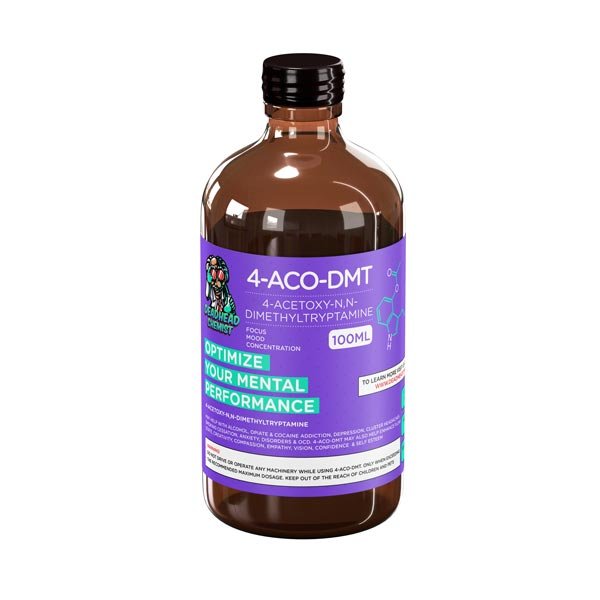



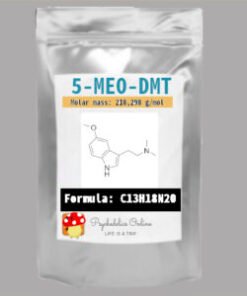
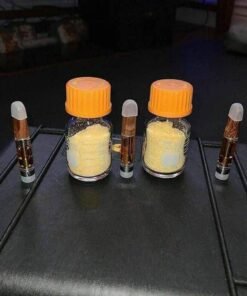
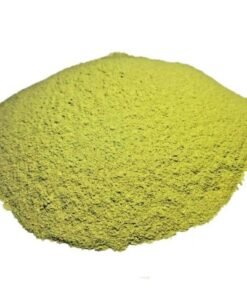

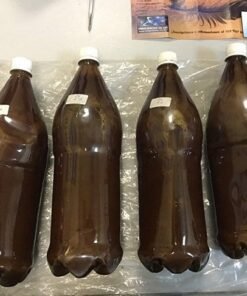
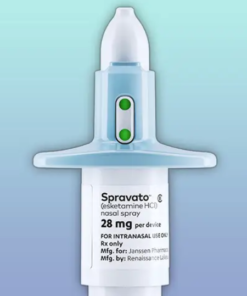
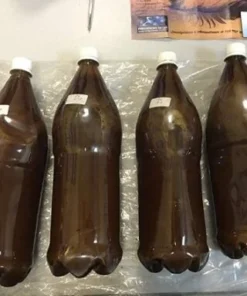

Reviews
There are no reviews yet.